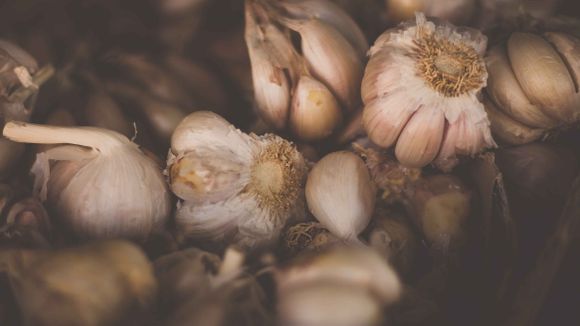Symptoms associated with high cholesterol
High cholesterol is a silent condition, often showing no signs or symptoms. However, it may eventually lead to serious health issues, such as:
- Chest pain (angina)
- Heart attack
- Stroke
- Peripheral artery disease
Possible causes of high cholesterol
High cholesterol can be caused by various diseases and conditions. Some of these include:
1. Familial hypercholesterolaemia
A genetic disorder causing high cholesterol levels from an early age. Consult a medical geneticist for diagnosis and treatment.
2. Hypothyroidism
An underactive thyroid gland may lead to increased cholesterol levels. Consult an endocrinologist for proper evaluation and management.
3. Diabetes
Uncontrolled diabetes can contribute to higher cholesterol levels. Consult an endocrinologist or diabetologist for appropriate treatment.
4. Kidney Disease
Impaired kidney function can cause elevated cholesterol levels. Consult a nephrologist for further evaluation and management.
Side effects of medications that can cause high cholesterol
Some medications can raise cholesterol levels as a side effect. These include:
- Corticosteroids: Used for treating inflammation and autoimmune conditions.
- Beta-blockers: Prescribed for high blood pressure and heart conditions.
- Diuretics: Also known as "water pills," used for treating high blood pressure.
- Retinoids: Used for treating severe acne and certain types of cancer.

Photo by Anton Darius on Unsplash
Herbal and Natural Treatments for High Cholesterol
Several herbs and natural remedies have been found to help lower cholesterol levels. These include:
- Garlic (Allium sativum): Known to lower LDL ("bad") cholesterol and prevent plaque buildup in arteries.
- Psyllium (Plantago ovata): A soluble fiber that helps lower cholesterol levels by binding to bile acids in the digestive system.
- Red yeast rice (Monascus purpureus): Contains naturally occurring compounds similar to statins, which can help lower cholesterol levels.
- Guggul (Commiphora wightii): An Ayurvedic herb known to reduce cholesterol levels and prevent plaque buildup in arteries.
Lifestyle Changes to Manage Cholesterol
To lower your cholesterol levels, consider adopting these healthy habits:
- Maintain a balanced diet low in saturated fats and high in fiber.
- Exercise regularly to help increase HDL ("good") cholesterol levels.
- Quit smoking to improve overall heart health.
- Limit alcohol consumption to moderate levels.
- Manage stress through techniques such as meditation or yoga.
Questions and Answers
Below are ten frequently asked questions that are not covered in the article:
Q: What are the normal cholesterol levels for adults?
A: Generally, the following cholesterol levels are considered healthy for adults:
Total cholesterol: Below 200 mg/dL
LDL cholesterol: Below 100 mg/dL
HDL cholesterol: 60 mg/dL or higher
Triglycerides: Below 150 mg/dL
Q: What is the difference between LDL and HDL cholesterol?
A: LDL (low-density lipoprotein) is often referred to as "bad" cholesterol because it contributes to plaque buildup in arteries. HDL (high-density lipoprotein), on the other hand, is called "good" cholesterol because it helps remove LDL cholesterol from the bloodstream.
Q: Can high cholesterol be hereditary?
A: Yes, familial hypercholesterolemia is a genetic disorder that causes high cholesterol levels from an early age. If you have a family history of high cholesterol, consult a medical geneticist for evaluation and management.

Photo by Tengyart on Unsplash
Q: Are eggs bad for people with high cholesterol?
A: While eggs contain cholesterol, dietary cholesterol has a smaller impact on blood cholesterol levels than previously believed. Consuming eggs in moderation as part of a balanced diet should not significantly affect cholesterol levels for most people.
Q: Can I consume any cholesterol-lowering supplements?
A: Some supplements, such as niacin, plant sterols, and omega-3 fatty acids, may help lower cholesterol levels. Consult your doctor before starting any new supplement to ensure it is appropriate for your health needs.
Q: Is weight loss helpful for managing cholesterol levels?
A: Yes, losing excess weight can help lower total cholesterol, LDL cholesterol, and triglycerides while raising HDL cholesterol levels.
Q: Can a vegetarian or vegan diet help lower cholesterol?
A: A plant-based diet that emphasizes whole grains, legumes, fruits, and vegetables can help lower cholesterol levels, as it is typically low in saturated fat and high in fiber.
Q: How do statins work to lower cholesterol levels?
A: Statins are a class of medications that work by inhibiting an enzyme called HMG-CoA reductase, which is responsible for cholesterol production in the liver. This leads to lower cholesterol levels in the blood.
Q: Can stress contribute to high cholesterol levels?
A: Chronic stress can indirectly contribute to high cholesterol levels by causing unhealthy lifestyle habits, such as overeating, smoking, or excessive alcohol consumption. Managing stress through relaxation techniques or physical activity can help improve overall health and cholesterol levels.
Q: Is there a link between high cholesterol and Alzheimer's disease?
A: Some research suggests that high cholesterol levels, particularly high levels of LDL cholesterol, may be associated with an increased risk of Alzheimer's disease. However, more research is needed to establish a definitive link.









